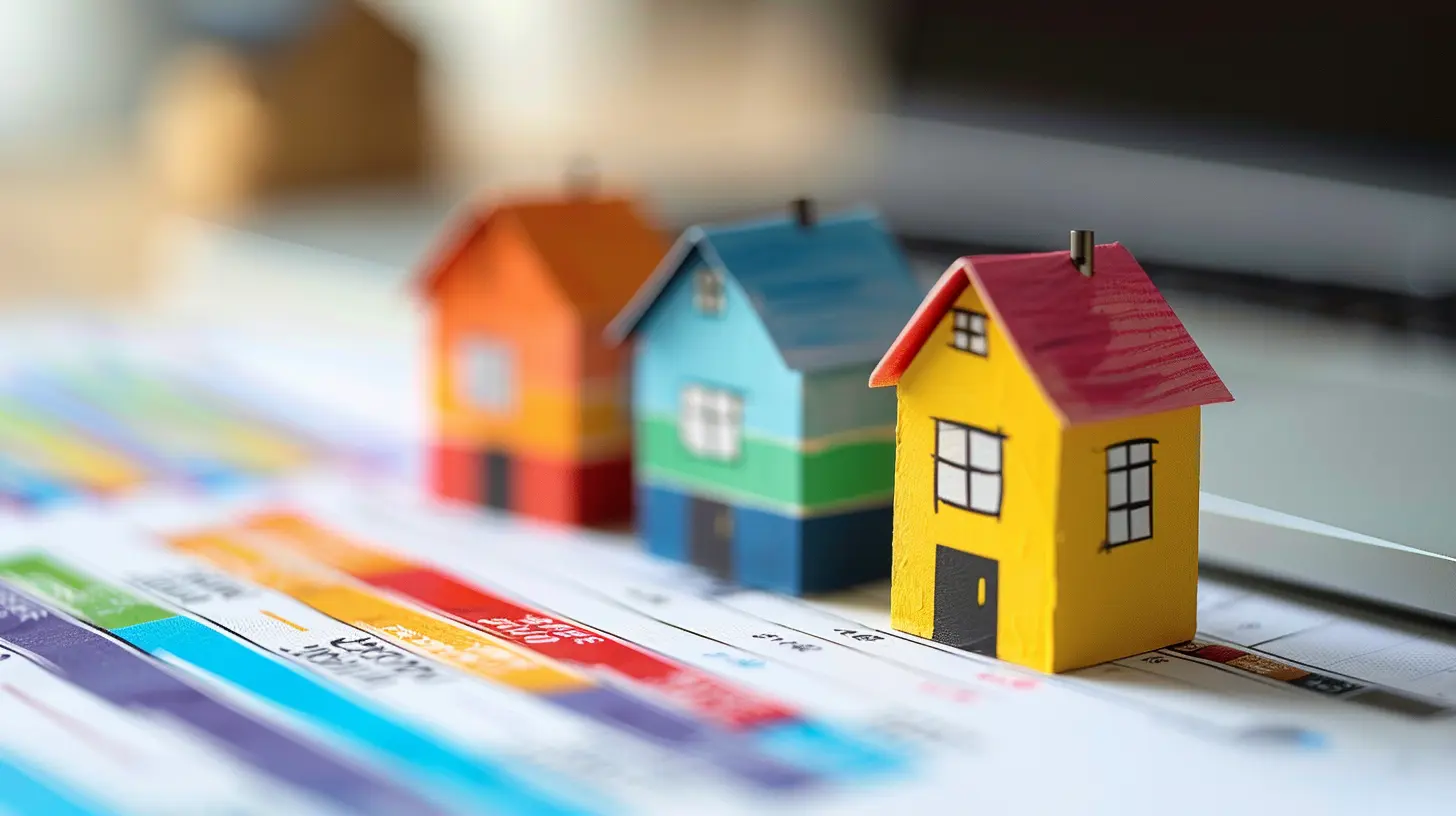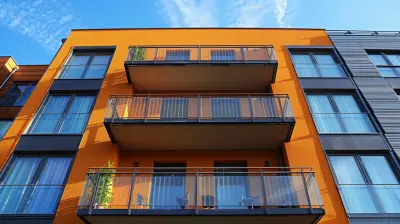The Growing Importance of Energy Efficiency in Property Values
5 September 2025
Let’s be honest — energy efficiency probably wasn’t the first thing on most people’s minds when buying a home ten or twenty years ago. You’d look at the kitchen, the number of bedrooms, and maybe the size of the backyard. But in today’s real estate world? Energy efficiency is climbing the priority ladder — fast.
Energy-efficient homes aren’t just trendy; they’re transforming into a core factor in real estate value. Whether you're a homebuyer, a seller, or a real estate investor, knowing the role energy efficiency plays in property value can seriously impact your decisions.
So, let’s take a deep dive into why energy efficiency is no longer a “nice-to-have,” but a powerful driver of property value in the modern housing market.
Why Energy Efficiency Matters More Than Ever
With rising energy costs, climate change, and increased awareness of sustainability, people are paying more attention to how their homes consume energy. We’re seeing a shift in values — quite literally. Homes that sip energy instead of guzzling it are becoming more appealing, and for good reason.Think About It: Who Wants to Overpay on Utility Bills?
No one. That’s the thing. Energy-efficient homes come with lower utility bills, and that’s a major selling point. Buyers are smarter and savvier now. They’re asking: What will this home cost to run every month?When a home has energy-saving features like high-quality insulation, smart thermostats, solar panels, and energy-efficient windows, it’s not just eco-friendly — it’s wallet-friendly, too.
The Connection Between Energy Efficiency and Property Value
Let’s talk dollars and sense. Homes that are energy-efficient often command higher prices and sell faster.Studies Back It Up
There’s actual data showing that energy-efficient homes not only sell for more but spend less time on the market. A study by the U.S. Department of Energy found that homes with energy-efficient certifications (like ENERGY STAR or LEED) sold for 5%–10% more than similar, non-certified homes.Now, 5% may not sound like a lot, but on a $400,000 home, that’s an extra $20k. That’s not pocket change.
Appraisers Are Taking Note
Appraisals are starting to reflect energy efficiency as a tangible value add. That’s a game-changer. In the past, upgrades like solar panels or new HVAC systems didn’t always get the credit they deserved. Today? Appraisers are more likely to factor in those improvements, which means homeowners can recoup more of their investment.
What Makes a Home Energy Efficient, Anyway?
Glad you asked. Energy efficiency isn’t just one magic feature; it’s more like a recipe that includes several key ingredients.Here Are Some Common Elements:
- Insulation: Keeps the house warm in winter and cool in summer.- Windows & Doors: Double or triple-paned for better thermal performance.
- Appliances: ENERGY STAR-rated appliances that use less power and water.
- Lighting: LED lighting uses around 75% less energy than traditional bulbs.
- HVAC Systems: High-efficiency furnaces, heat pumps, and air conditioners.
- Solar Panels: Yes, they cost upfront, but over time they can slash your power bills.
- Smart Thermostats: Learn your habits and adjust heating/cooling automatically.
The more of these a home has, the more energy efficient it typically is — and the more appealing it becomes to buyers.
It’s Not Just About the Money — It’s About Comfort
Let’s step away from dollar signs for a second. Energy-efficient homes are simply more comfortable to live in.Have you ever lived in a drafty older home where the heat is always either blasting or off? Not fun. Efficient homes tend to maintain a consistent, cozy temperature. They’ve got fewer drafts, less moisture, and better air quality overall.
So yeah, you’re saving money—but you’re also just enjoying your space more. That’s something that’s hard to put a price on.
Millennials and Gen Z: The Eco-Conscious Buyers
There’s also a generational shift at play here. Younger buyers — mainly millennials and the rising Gen Z — care deeply about sustainability. They want smart homes that not only save energy but also leave a lighter footprint on the planet.These generations are also more likely to research homes online before even stepping inside. If your listing doesn’t include energy-efficient features, you're already a step behind. Including green certifications and energy ratings in a listing can make a huge difference in visibility and appeal.
Energy Performance Certificates: A Game Changer
Many countries now require an Energy Performance Certificate (EPC) when selling a home. This certificate shows how energy-efficient the property is, from "A" (super efficient) down to "G" (not so great).Why EPCs Matter
An EPC doesn’t just help buyers make informed choices — it also impacts how much they’re willing to pay. A higher rating can mean lower running costs, and that's a big draw for budget-conscious buyers.In fact, homes with better energy ratings often get higher asking prices. It makes perfect sense: lower bills, better insulation, and smart systems all translate into long-term savings.
Solar Power: Not Just for Hippies Anymore
Remember when solar panels were a niche thing, mainly for off-grid cabins or ultra-green households? Yeah, not anymore.Solar energy has gone mainstream. The cost of solar panel installation has dropped dramatically in the past decade, while energy prices have risen. That balance has made going solar a no-brainer for many homeowners.
Plus, solar panels can seriously boost your home’s resale value. According to Zillow, homes with solar-energy systems sold for 4.1% more on average. And in states with high electricity rates, that percentage can go up even further.
Energy-Efficient Upgrades That Offer the Best ROI
If you’re a homeowner or investor thinking about boosting your property’s energy efficiency, some upgrades offer better returns than others. Here are a few that are worth the money:1. Insulation and Air Sealing
Probably the most cost-effective way to make a home energy efficient. It’s not flashy, but it works.2. Window Replacements
Double or triple-pane windows lower energy loss and reduce noise, a big win in urban areas.3. HVAC System Upgrade
A new high-efficiency furnace or AC unit can slash monthly bills and add serious value.4. Solar Panel Installation
It’s an investment, but between federal tax credits and long-term savings, it pays off.5. Smart Thermostat
Easy to install and often under $200, it saves energy automatically — and looks cool, too.Bottom line? You don’t have to gut your home to make it greener. Small upgrades can lead to big returns in property value and energy savings.
Real Estate Agents Are Getting on Board
More real estate agents are learning the ins and outs of energy efficiency. Why? Because buyers are asking about it. A knowledgeable agent who can explain how a home’s insulation, solar system, or HVAC setup affects its value is a huge asset.As energy efficiency becomes more central to property values, expect to see it featured more prominently in property listings, open houses, and negotiations.
Government Incentives Are Sweetening the Deal
Don’t sleep on the incentives! Local, state, and federal governments often offer tax credits, rebates, and grants for energy-efficient upgrades. These programs can significantly lower the cost of making your home more efficient — and more valuable.From solar installation credits to insulation rebates, taking advantage of these programs is like getting paid to boost your home’s value.
Looking Ahead: Green Homes Aren’t Just a Fad
Let’s face it — energy-efficient properties are here to stay. The trend toward green living is only getting stronger. As building standards evolve and consumers become more eco-conscious, the demand for energy-efficient homes will keep rising.So whether you're buying, selling, or investing, making energy efficiency part of the conversation isn’t just smart — it’s essential.
Final Thoughts: Energy Efficiency Is More Than a Buzzword
Energy efficiency is no longer just a checkbox on a property listing — it’s an investment in the future. It adds to your home’s value, saves money, boosts comfort, and helps the environment. What’s not to love?So, if you're looking to buy a home, keep an eye out for energy-efficient features. And if you’re selling? Highlight those features like your property depends on it — because in many ways, it does.
Property values are changing. Make sure your strategy changes with them.
all images in this post were generated using AI tools
Category:
Real Estate TrendsAuthor:

Cynthia Wilkins
Discussion
rate this article
1 comments
Brigitte Roth
In a market where every watt counts, energy efficiency isn't just a trend—it's a value booster. As buyers seek sustainability, properties with green features will shine brighter on the competitive stage.
September 11, 2025 at 11:46 AM

Cynthia Wilkins
Absolutely! Energy efficiency not only enhances property value but also aligns with buyer preferences for sustainability. It's a win-win in today's market.


